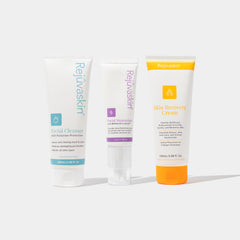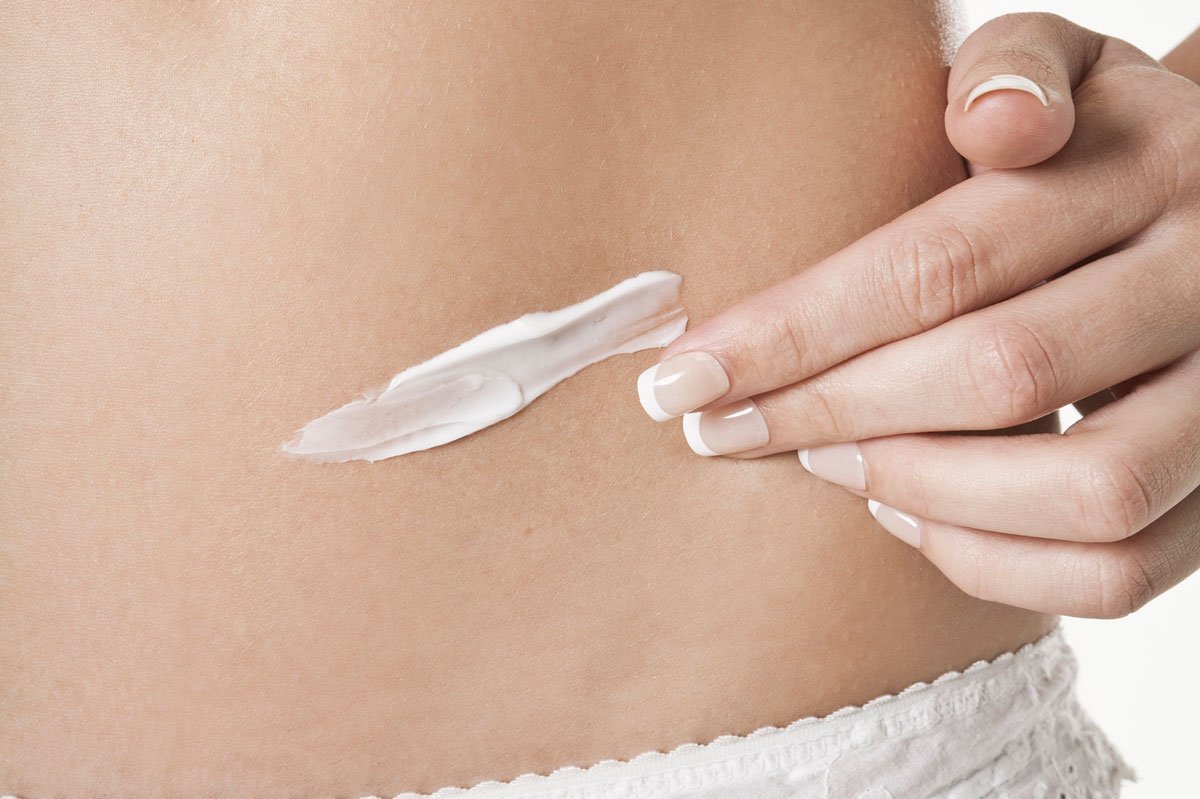Choosing the right scar cream or silicone scar gel to diminish the intensity of your scars can be hard. Passing through long lists of ingredients, reading testimonials, and trying different products is an arduous and time-consuming process. Thankfully, there are ways to make sense of the ingredients and what they do to benefit the effectiveness of the cream or gel. It can also be helpful to ask yourself what you are looking for out of a scar cream, and then take two products and compare their ingredients.
Let’s take a look at two popular scar-product brands: Rejûvaskin® and Mederma, and compare what each formula brings to the table. All discussions about scar removal begin and end with silicone, so let’s look at that. But first, we must examine what a scar is and how it is formed.
How Scars Are Formed
After a cut or surgical incision, the wound closes and a scar begins to form. As your skin heals itself, excessive water loss can occur for up to two years. This water loss causes dehydration in the skin and informs the surrounding cells to produce collagen. This is the body’s way of combating dehydration. The more water loss that occurs from a wound, the more collagen is produced. Collagen is what scars are made out of. When too much collagen is produced, a raised scar appears. This thickened scar can turn into a keloid scar if left untreated.
Silicone
When a silicone sheet or silicone scar gel is applied to this raised keloid scar, it stops the water loss and collagen production that lead to large, conspicuous scars. Silicone will prevent the scar from thickening and rising. This can result in a flatter, softer, and less noticeable scar. Silicone sheets and gels also help protect against bacterial infections. Silicone is the gold standard for scar treatment. It can work on even the oldest and most severe scars.
Rejûvasil: contains silicone
Scar Esthetique: contains silicone
Mederma Advanced Scar Gel: does not contain silicone
Allium Cepa
Allium Cepa is the scientific name for onion extract. Onion contains bioflavonoids with antihistamine and antiproliferative properties to help scars swell less. It improves softness and redness, but there is confusion about its effectiveness. It has not been shown to affect scar height or itching.
Rejûvasil: does not contain Allium Cepa
Scar Esthetique: contains Allium Cepa
Mederma Advanced Scar Gel: contains Allium Cepa
Vitamin C
It is no secret that Vitamin C is a wonder ingredient. Vitamin C is an antioxidant and the number of ways it benefits your body is astonishing. In addition to helping your body grow stronger connective tissue, bones, and blood vessels, it also helps treat skin. Vitamin C is often used to lighten unwanted dark spots and sun damage on the skin and in the same way, helps with the unwanted darkness of scars.
Rejûvasil: contains Vitamin C
Mederma Advanced Scar Gel: does not contain Vitamin C.
Squalane
Squalane is another all-natural ingredient that is derived from plants. Many scar creams only contain silicone and leave a sticky residue on your skin after they are applied. This stickiness can stay on all day, and it can be very annoying. Squalane helps to moisturize the skin and when used in silicone creams (especially in conjunction with Emu Oil) alleviates this sticky, uncomfortable residue. That way, you can treat your scars and your skin feels normal as you go about your day.
Rejûvasil: contains Squalane
Mederma Advanced Scar Gel: does not contain Squalane.
Verdict
While both gels are marketed as great scar management produts, the main differences are that Rejuvasil has silicone while Mederma does not, and Mederma has the onion extract that Rejûvasil does not. Determining which scar gel is best for you is an individual decision based on what bothers you about your scar and what you would like to see improvements with.





















Leave a comment